Targeted Therapy Cost in India
Unlock Exclusive Discount : Your Gateway to Premium Healthcare with Medsurge India Health Value Card.

Unlock Exclusive Discount : Your Gateway to Premium Healthcare with Medsurge India Health Value Card.


Targeted therapy works by utilizing medications that are made to look for characteristics particular to certain cancer cells or ones that affect their activity. Enzymes, proteins, or gene alterations may be among these traits and may be what’s causing the disease to spread. Drugs used in targeted therapy are made to either directly attack cancer cells or to improve the efficacy of conventional cancer treatments like chemotherapy. Additionally, radiation therapy or surgery may be utilized in conjunction with the medications. Targeted therapy in India begins with a physical examination, which helps to analyze all symptoms before beginning the treatment plan. To evaluate whether an available targeted therapy may be beneficial to a patient, oncologists rely on cutting-edge genomic testing as well as other laboratory tests or diagnostic techniques. The treatments are tailored to the particular tumors they target or to particular characteristics of cancer cells, wherever they manifest themselves in the body.
The cost of targeted therapy in India is quite affordable when compared to that of other wealthy nations. The success is partly attributable to the sophisticated medical technology found in Indian hospitals as well as the skill of the oncologist. Aside from these advantages, another crucial factor in India’s appeal around the world is its inexpensive cost without compromising clinical standards.
“Targeted therapy” is a sort of cancer treatment. Drugs are used to specifically target the genes and proteins that support the growth and survival of cancer cells. The tissue environment in which cancer cells thrive can be changed by targeted therapy, or it can focus on cells like blood vessel cells that are associated with cancer growth.
Many different forms of cancer can be treated using targeted therapy. Additionally, it can be used in conjunction with other cancer therapies like chemotherapy. Although not all cancers can now be treated with targeted therapies, this is a field of study that is expanding quickly, and numerous new targeted therapies are being tested in clinical studies.
Targeted therapy comes in a variety of forms. Small-molecule medications and monoclonal antibodies are the two most prevalent categories.
Monoclonal antibodies are medications that stop a particular target on the surface of cancer cells. The region surrounding the cancer cells may potentially be the focus. Additionally, cytotoxic agents can be delivered directly to cancer cells using monoclonal antibodies. For instance, they can facilitate improved cancer cell penetration through chemotherapy and radiation therapy.
Small-molecule medications are capable of preventing the growth and spread of cancer cells. Inhibitors of angiogenesis are an illustration of this kind of tailored treatment. The process of angiogenesis is how new blood vessels are created. Blood vessels are necessary to deliver nourishment to tumors. Inhibitors of angiogenesis starve the tumor by preventing the growth of new blood vessels in the tissue surrounding it.
Apoptosis inducers and additional immunotherapies are examples of various forms of targeted therapy (therapies that start cell death, or apoptosis).
Affordable Targeted Therapy Cost in India starts from INR 3,50,000 (4,200 USD). India’s treatment expenses are more affordable when compared with other nations. Additionally, the level of medical care and services offered there is on par with those of the greatest hospitals in the world. Even after excluding the fees of travel, housing, and food.
The entire cost of Targeted Therapy in India can vary depending on a number of criteria, such as
Medsurge India offers the best treatment package for Targeted Treatment cost in India at a more affordable price for international patients coming to India under the supervision of the most trained doctors. Also, you can click here for the medical visa process.
India’s healthcare industry has advanced significantly over the past years, as seen by the notable accomplishments it has made. One of the industries that have contributed the most to revenue and is expanding quickly is healthcare. Both public and private providers support the healthcare industry. In India, targeted therapy is a more focused and potent form of medication that can destroy cancer cells without damaging healthy cells. It may also stop the development of cancer cells. For some types of cancer, medical oncologists are now combining chemotherapy with targeted medication therapy.
In India, targeted therapy has improved survival rates and decreased the chances of cancer recurrence. Modern medical technology and highly skilled medical personnel are available in India. The World Health Organization (WHO) and the US Food and Drug Administration support medical facilities and services. In addition, India provides less expensive treatment alternatives than the US and the UK without sacrificing the standard of healthcare. About one-fourth, less is spent on therapy in India than it is in the United States.
India has an advantage over other countries in terms of medical tourism because of the following:
When a cell's DNA mutates or becomes damaged, cancer can arise. Drugs used in targeted therapy are made to focus on a narrow range of targets, some of which are cancer cell surface mutations and others that are internal to the cancer cell. When these medications reach their intended target, they may:
Your doctor may request testing to identify the genes, proteins, and other components specific to cancer you have in order to choose the best-targeted therapy. This aids in determining the best course of treatment.
Targeted therapies can have side effects, just like other treatments, so it's crucial that your doctor chooses the appropriate treatment and dosage for your tumor. Based on a variety of variables, including body weight and your risk of experiencing serious side effects, the recommended dose of targeted therapy is determined. Ask your medical staff why they suggest a particular dosage.
For example, Bevacizumab (Avastin®) is a medication that has the potential to impair cancer's capacity to produce new blood vessels, hence increasing the blood supply that the disease needs to feed itself. Vascular endothelial growth factor (VEGF), a protein that supports the formation of new blood vessels by cells through the process of angiogenesis, is produced by all cells. Angiogenesis-inhibiting medications like bevacizumab are made to block VEGF and prevent tumors from growing new blood vessels.
India has extremely reduced treatment expenses as compared to other nations. Additionally, the level of medical care and services offered there is on par with those of the greatest hospitals in the world. Even after excluding the fees of travel, housing, and food, targeted therapy in India costs starts from USD 4200.
The entire cost of Targeted Therapy in India can vary depending on a number of criteria, such as
Treatment using Targeted Therapy in India Hospitals is renowned for their services in patient care and hospitality. These hospitals have some of India's top oncologists who are experts in their professions. For an international patient, selecting a good hospital for treatment might be challenging. It is a crucial choice that needs to be made while keeping a number of things in mind, such as:
Medsurge India is a prestigious support system for patients looking for doctors, hospitals, and specialized treatments. We'll find the most suitable medical options for you. Regarding your medical issues, our team will give you a list of certified, reputable, and trusted doctors and hospitals. Additionally, we offer a treatment strategy that fits your budget. Apart, we assist patients with obtaining travel authorizations, medical visas, and a multitude of other things.
A: The majority of cancer treatments work by interfering with specific proteins that aid tumor growth and spread throughout the body. This is in contrast to chemotherapy, which frequently kills all rapidly growing and dividing cells.
A: People with advanced and metastatic NSCLC who respond to targeted therapies or checkpoint inhibitors now live for three to four years after diagnosis, according to Mok, with a lucky few living significantly longer.
A: While chemotherapy has a success rate of around 30%, targeted therapy has a success rate of up to 80%. In contrast to the scatter-gun chemotherapy approach, targeted therapy is thought to be more sniper-like, accurately killing its target while causing no collateral damage to otherwise healthy cells.
A: Some chemotherapy drugs are known to cause hair loss or thinning. Hair thinning is more common with hormone therapy, targeted cancer drugs, and immunotherapy. However, some people may experience hair loss. Hair falls out in the treated area as a result of radiotherapy.
A: Small-molecule medications. Small-molecule drugs can stop the process that allows cancer cells to multiply and spread. This type of targeted therapy includes angiogenesis inhibitors. Angiogenesis is the process by which new blood vessels are formed. Tumors require blood vessels to transport nutrients to them.

Surgical Oncologist
Senior Consultant
12+ Years
BLK Max Super Speciality Hospital, New Delhi
View Doctor
Medical Oncologist
Associate Consultant
10+ years
Meitra Hospital, Calicut, Kerala
View Doctor
Radiation Oncologist
Senior Consultant
10+ years
Apollo Proton Cancer Centre, Chennai
View Doctor
Surgical Oncologist
Senior Consultant
8+ years
Meitra Hospital, Calicut, Kerala
View Doctor

Medical Oncologist
Consultant
15+ years
Care Hospitals HITEC City
View Doctor
Surgical Oncologist
Sr. Consultant & Associate Clinical Director
20+ years
Care Hospitals HITEC City
View Doctor
Surgical Oncologist
Senior Consultant
13+ years
Care Hospitals HITEC City
View Doctor
Surgical Oncologist
Senior Consultant & Head of the Department
22+ years
Care Hospitals HITEC City
View Doctor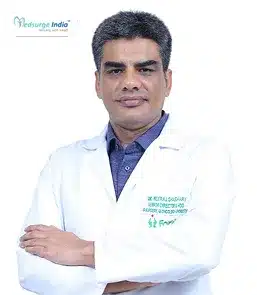
Surgical Oncologist
Senior Director
15+ years
Fortis Hospital, Vasant Kunj, Delhi
View Doctor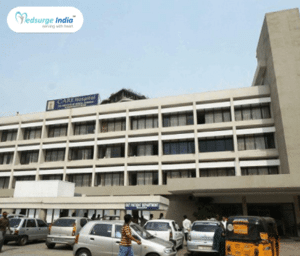
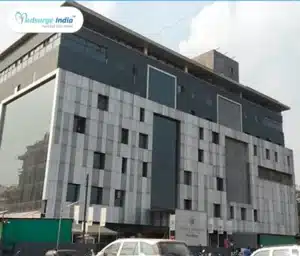
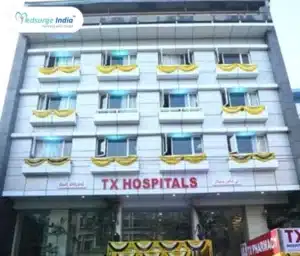
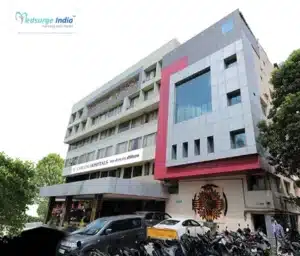



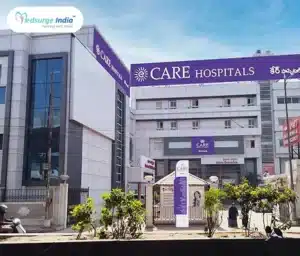
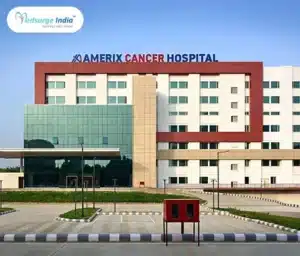
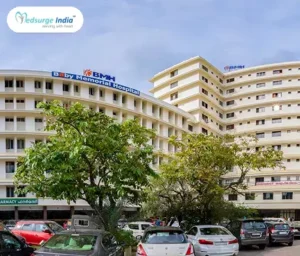
By using our site, you agree to our Terms and Conditions, Privacy Policy and Refund Policy. Medsurge India provides reliable healthcare information and treatment options to support informed decision-making. Our content is designed to support and complement the guidance of your treating doctor, helping you feel informed and confident throughout your healthcare journey. We also Accept International Payments.

Copyright © 2025 NSM ONLINE SOLUTIONS PRIVATE LIMITED. All rights reserved.